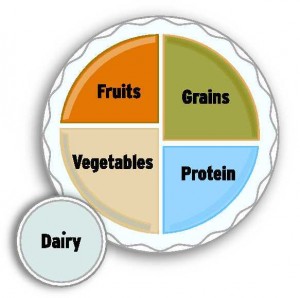
What Is A Balanced Diet?
Eating A Balanced Diet Means Choosing A Wide Variety Of Foods And Drinks From All The Food Groups. It Also Means Eating Certain Things In Moderation, Namely Saturated Fat, Trans Fat, Cholesterol, Refined Sugar, Salt And Alcohol. The Goal Is To Take In Nutrients You Need For Health At The Recommended Levels.
The Importance Of Balanced Diet:
To get a balanced diet and nutrition it is important to choose foods from all food groups (cereals, pulses, poultry and meat, milk and milk products, fruits and vegetables share on the basis of its importance & diet plan).
Eating a varied diet increases the chances that all your nutrient needs will be met, hence it is very important to take a balance diet.
Sample of a balanced diet:
The major nutrients for the body are protein, carbohydrate, and fat. These provide the body with energy for various functions like beating of heart, activity of muscles and brain. In addition the body needs vitamins, and minerals for it�s optimal functioning. Here is a pyramid chart for your convenience.
1. Proteins, carbohydrates and fats are the macro nutrients that your body needs. They are needed to maintain and regulate the body functions. Most people with average activity should get approximately 50 percent of their total daily calories from carbohydrate, 15 percent to 20 percent come from protein and 30 percent come from a fat source. People who are involved in endurance sports (e.g., long-distance biking or marathon running) should get 60 percent to 70 percent of their total daily calories from carbohydrates
2. Micro nutrients are needed in small quantity but they are needed to maintain and regulate several body functions. Eating a varied diet increases the chances that all your micro nutrient (vitamins and minerals) need, will be met. However as most children and youngster are not likely to eat a varied diet so daily multivitamin with mineral supplement may be appropriate. Before starting any supplement consult your doctor as even vitamin and mineral supplements can have side effects if the daily dose exceeds the recommended daily allowance
3. Your body contains about 60-75 percent of water. Even though we do not realize water is an important component of proper nutrition. It is needed for several key functions like regulation of temperature, transport and absorption of nutrients, and elimination of waste products from the body. Feeling of thirst, dry mouth, tiredness, headache and dizziness indicate that you need fluids. If your fluid intake is not adequate it may lead to serious problems such as dehydration. Your fluid intake should be liberal to prevent dehydration�drink six to eight glasses of fluid every day. Fluids intake include not only water but all kinds of beverages, fruits and vegetable juices as well. But water is the best to prevent dehydration. It does not contain empty calories or caffeine. (Click here for more detail about Dehydration )
4. Eat a varied diet. A simple and effective way to make sure that you eat a balanced diet is eat foods from all the groups. Aim that every time you eat your plate contains: 50 per cent vegetables (if possible of different kinds), 25 per cent protein, 25 percent whole grain (like whole wheat bread, brown rice)
Balanced Diet Is Good 4 Every One